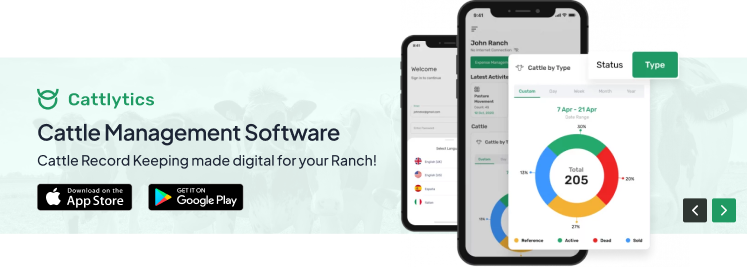The dairy industry faces a revolutionary change wrought by the fast-paced nature of technological breakthroughs and the ever-changing consumer demands. With the help of ERP for dairy industry, companies must face the dynamic landscape’s challenges.
Dairy remains within a dynamic framework where supply chains have multiple layers, are dotted by numerous actors with divergent interests, and are associated with rigorous regulatory conditions.
Dairy businesses can strike an essential balance with the process automation offered by Enterprise Resource Planning (ERP) software to enhance operation efficiency and gain business advantage.
In the dairy industry, milk makers and processors, distributors, and retailers alike have to cope and stay afloat, engaging in all kinds of activities, such as fluctuations in consumer demand, perishable inventory management, and meeting quality standards.
The ERP for dairy industry offers comprehensive dairy ERP solutions to large and elaborate issues faced by the dairy industry by mingling and blending core business processes like production planning, inventory management, and quality control.
ERP software provides dairy businesses with interoperability, improving their processes, efficiency, and decision-making. This blog post will examine how the newest generation of computer-based dairy ERP solutions is reshaping the dairy industry and helping it overcome challenges.
Understanding ERP
Enterprise resource planning (ERP ) is a complex, inclusive, and robust software that collects. It organizes data regarding central business processes, including finance, human capital, production, and the supply chain, into a single access point.
ERP for dairy industry is a single system in which many challenges are unified for various processes and tasks. This allows organizations to run effectively, waste no time, and make decisions quickly.
ERP is so crucial in dairy production that it holds the key to success and efficiency throughout the supply chain, from milk production and processing to distribution and sales. ERP for dairy industry helps dairy companies manage inventory levels, track raw materials, check production processes, and maintain regulators’ standards.
Additionally, they offer live monitoring of critical metrics and performance indicators, which enable dairy manufacturers to rely on essential data and make fact-based decisions, thus saving on resources and guaranteeing efficiency.
Moreover, ERP for dairy industry will enable smooth cross-department data and multiple stakeholder interactions within the organizations, thus improving productivity through efficient workflows.
The Need for ERP for Dairy Industry
The dairy industry faces problems like volatile milk production (due to seasonal and weather conditions), perishable inventory management, strict quality controls, and complex supply chain and logistics. These challenges should be promptly handled and addressed if they are to be successful and meet the consumer’s needs.
How Does ERP Address These Needs?
ERPs for dairy industry address the industry’s specific issues by their nature. They provide centralized data storage, a real-time overview of operations, and complex analytics.
Using ERP, dairy companies can optimize milk production, streamline inventory management, maintain product quality, and comply with government laws. With an efficient ERP system, dairy businesses can easily integrate departments from procurement and production to distribution and sales.
Thus, ERP creates opportunities for improvement in performance, productivity, and profitability. It is a contemporary business tool for the dairy industry, helping dairy companies address operational challenges and remain competitive.
Why Should Dairy Companies Implement ERP for Dairy Operations? – Benefits of Implementing ERP
ERP for dairy industry enables dairy operations to be optimized and opens opportunities beyond simple digitization.
The range of ERP systems is now very diverse. These systems support supply chain management activities, quality control, and production upsurge. Hence, ERP systems become significant factors for dairy businesses trying to survive in a competitive market.
Below are the benefits of implementing ERP for dairy industry operations:
Streamlined Processes
ERP software adapted for the dairy sector was created to automate the complexity of essential processes, including recipe and formula management, allergen following, ingredient tracking, recall steps, and management.
Hence, e-commerce bots can streamline these tasks for companies, simplifying reporting, ensuring compliance, and increasing operational efficiency.
Enhanced Visibility and Control
ERP systems allow users to see current inventory levels, the business’s production stage, how the quality assurance procedures work, and the financial status. Thus, dairy enterprises can command their business entirely, make sensible decisions, and be on top when issues or bottlenecks are imminent.
Improved Efficiency and Productivity
With this ERP software, numerous manual tasks are automated, paperwork is significantly trimmed, and duplication of efforts is also barred. This phenomenon provides a favorable environment in the form of better efficiency.
In addition, productivity is derived from workers who devote their time to creative activities. Efficient processes allow for cutting lead time and turnaround time and increasing output.
Better Cost Management
In this area, Dairy ERP solutions comprise particular functions like cost definition, evaluation of commercial values derived from inventory, and finance reporting. These solutions allow companies to do much more besides the tenet functions, such as cost tracking, pricing strategies, and increased profits.
It is also notable primarily due to features like yield reporting and standing orders, which are chief in that they control costs and maximize financial returns.
Herd and Dairy Management Solutions
ERP systems designed for managing farms of any scale, including automatic birth records, death and animal registration, data tracking, and multiple farm support, maybe the best choice for farmers.
These systems, particularly when integrated with dairy management software, allow dairy companies to manage and improve their ownership and productive processes, including reproductive science.
Cattle Breeding Management
ERP solutions include herd management functionalities that allow breeding management, such as lot book reminders, genetic opportunities, and registration of new calves. This reduces the incidence of poor fertility and breeding and improves herbal productivity.
Milking Parlor Links
Sophisticated ERP for the dairy industry connects milking parlors that deliver and receive information between computerized milking parlors and the studbook.
This constant flow of data integrates well with milking operations data, enhancing precision and operational efficiency simultaneously.
How Do These Benefits Relate to Dairy Businesses’ Overall Performance and Profitability?
The benefits of ERP implementation directly contribute to dairy businesses’ overall performance and profitability. ERP optimizes efficiency, improves inventory management, ensures product quality, and facilitates informed decision-making, enabling dairy companies to operate more competitively, meet customer demands more effectively, and achieve higher long-term profitability.
Role of Dairy ERP in Streamlining Dairy Operations
Efficient Supply Chain Management
An ERP for dairy industry enables real-time monitoring of milk collection, transportation, and distribution. This enhances visibility for better planning and optimization of the supply chain, ultimately minimizing delays and reducing wastage.
Quality Control and Compliance
In a strictly regulated industry, dairy ERP systems facilitate quality control by monitoring raw materials, inspecting production processes, and ensuring compliance with regulatory standards and certifications, safeguarding consumer health and brand reputation.
Inventory Optimization
ERP for dairy industry offers real-time inventory tracking and automatic re-ordering functionalities. These enable businesses to optimize stock levels, reduce excess inventory, and minimize wastage by effectively managing expiries and shelf life.
Streamlined Financial Operations
ERP dairy industry software automates billing, invoicing, and payment processes, generates accurate financial reports, and facilitates cost analysis, streamlining complex financial transactions in the dairy industry.
Enhanced Decision-Making
ERP for dairy industry consolidates data from various departments and processes, providing robust business analytics tools that enable informed decision-making. This empowers dairy businesses to adapt and thrive in a competitive market landscape.
Introduction to AgTech Dairy ERP Software
The dairy business has problems ranging from supply chain issues to product quality control and necessary constraints. Today, the AgTech ERP dairy industry software can be assembled and is aimed at overall objectives.
Overview of AgTech Dairy ERP Software and Its Features
AgTech Dairy ERP software handles all internal functions in one place by creating the inter-functional structure of finance, supply chain, operations, and HR, offering a whole solution to dairy companies.
The platform may feature streamlined supply chain management, automated capabilities in warehouse operation, and real-time inventory tracking, making operations from the farm to the table smooth and seamless.
How Does AgTech Dairy ERP Software Address the Needs of the Dairy Industry?
AgTech Dairy ERP Software addresses these challenges by delivering scaling, adaptability, and security solutions that match the dairy businesses’ needs. It straightens up the processes, increases productivity, and provides a real-time farm activities window.
Functions such as quality control and compliance services ensure that the rules and regulations are producing the products, guaranteeing the health of a consumer and sustaining the brand’s reputation.
Comparison of AgTech Dairy ERP Software with Other ERP Solutions in the Market
AgTech Dairy ERP software is highly customizable, flexible to integrate with other systems, and powered by thorough analytics, distinguishing it from its competitors. Unlike other ERP solutions, it is designed specifically for crop and livestock management, coupled with IoT devices, and has comprehensive data analytics suited for exacting farming and soil health assessment.
Implementing AgTech Dairy ERP Software
Implementing AgTech ERP dairy industry software involves several vital steps to ensure a smooth transition and successful integration into dairy operations.
Steps to Implement AgTech Dairy ERP Software:
Discovery and Assessment:
Understand the dairy operation’s specific needs and challenges. Identify key stakeholders and their ERP system requirements.
Planning and Strategy:
Develop a comprehensive implementation plan that includes timelines, resource allocation, and budgeting. Define clear goals and objectives for the ERP implementation.
Customization and Configuration:
Tailor the AgTech Dairy ERP software to the dairy industry’s unique requirements. Configure the system to align with business processes and workflows.
Training and Education:
Thoroughly train users at all levels of the organization and ensure they can use the ERP software effectively to maximize its benefits.
Data Migration:
Transfer existing data from legacy systems or spreadsheets into the AgTech Dairy ERP software. Ensure data integrity and accuracy throughout the migration process.
Testing and Quality Assurance:
Conduct rigorous testing to identify and resolve any issues or bugs in the ERP system. Ensure all functionalities work as intended before deployment.
Deployment and Go-Live:
The AgTech Dairy ERP software will be deployed to the organization. System performance will be monitored, and any issues that arise during the initial launch phase will be addressed.
Best Practices for Successful Implementation:
Strong Leadership and Project Management:
A project manager should be exclusively assigned to run the plan and ensure that implementation tasks are carried out within the scheduled time frame.
User Involvement and Feedback:
Encourage end-user engagement during the implementation process. Collect feedback and implement user input to individualize ERP software and increase usability.
Change Management:
Expect resistance to change and deal with it proactively by communicating with staff members, training them, and using regular reinforcement and support. Cognize how the dairy industry ERP will help workers with its advantages and improve work processes.
Regular Monitoring and Evaluation:
After deployment, continue to assess the live performance of AgTech Dairy ERP software. Identify improvement areas and incorporate complementary amendments to address where necessary.
Potential Challenges During Implementation and How to Overcome Them:
Resistance to Change:
By effectively communicating, training, and using proven change management strategies, overcome the obstacle of resistance. Present the advantages of this particular ERP and engage employees in the decision-making process.
Data Migration Issues:
The top priority is conducting comprehensive data migration tests and verifying data integrity. Include technical details on how to manage any situation during the migration process.
Customization Complexity:
Develop a system for prioritizing the necessary features and functions to simplify customization. In close collaboration with the vendor company, the ERP system must be adapted to meet the specific industry needs of the dairy sector but avoid complicating it through this process.
Integration Challenges:
Ensure the system smoothly integrates with all systems and modern technologies. Perform comprehensive testing to discover and resolve issues before releasing the solution into production.
Conclusion
Implement ERP systems to modernize the dairy sector through process integration, improved efficiency, and a guarantee for compiling. AgTech Dairy ERP software has been developed to meet each dairy business’s requirements by offering a robust collection of features and attributes.
AgTech Dairy ERP software offers several opportunities for dairy agribusinesses, such as improving the efficiency of the supply chain management, ensuring quality control, streamlining inventory management, optimizing financial operations, and IA enhancing the capacity to control the business.
Dairy farmer businesses must implement AgTech Dairy ERP software to ensure competitiveness in today’s dynamic agri-industry that enables productivity and economic growth.
FAQs
What is an ERP system, and Why is it Essential for Your Company?
An ERP system is an integrated software representation that becomes comprehensive to run multiple core processes within a business smoothly. The significance of this tool relies on its ability to aggregate data, execute operations, increase efficiency, and create very in-depth insight that can help in the decision-making process.
What is the Role of the ERP System?
An ERP system is the centralized arbitrary agent for the organization’s day-to-day business operations. This process includes but is not limited to, accounting, procurement, project management, risk management, compliance, and supply chain management.
Why is ERP Critical in the Food Industry?
ERP plays a pivotal role in the food industry. It enables companies to streamline production, effectively manage inventory, track ingredients and formulations, and ensure compliance with stringent food safety regulations.
What are the Three Common Types of ERP?
On-premises ERP solutions are hosted and managed internally on a company’s servers, while cloud-based ERP operates on remote servers managed by a third-party provider. Hybrid ERP combines elements of both on-premises and cloud-based systems, offering flexibility and scalability to meet diverse business needs.
What are the Five Components of ERP?
Critical components of an ERP system typically include finance, human resources, logistics and manufacturing, supply chain management, and customer relationship management.
How are ERP Systems Used in the Industry?
ERP systems are extensively utilized across industries, including distribution and retail. They facilitate efficient operations in these industries by enabling businesses to monitor inventory levels across multiple locations.
How Does ERP Improve Efficiency?
ERP for dairy industry enhances efficiency by automating various business tasks and processes while reducing repetitive manual tasks. Additionally, ERP systems improve inventory management by automating processes, leading to smoother operations and increased efficiency across numerous departments.







